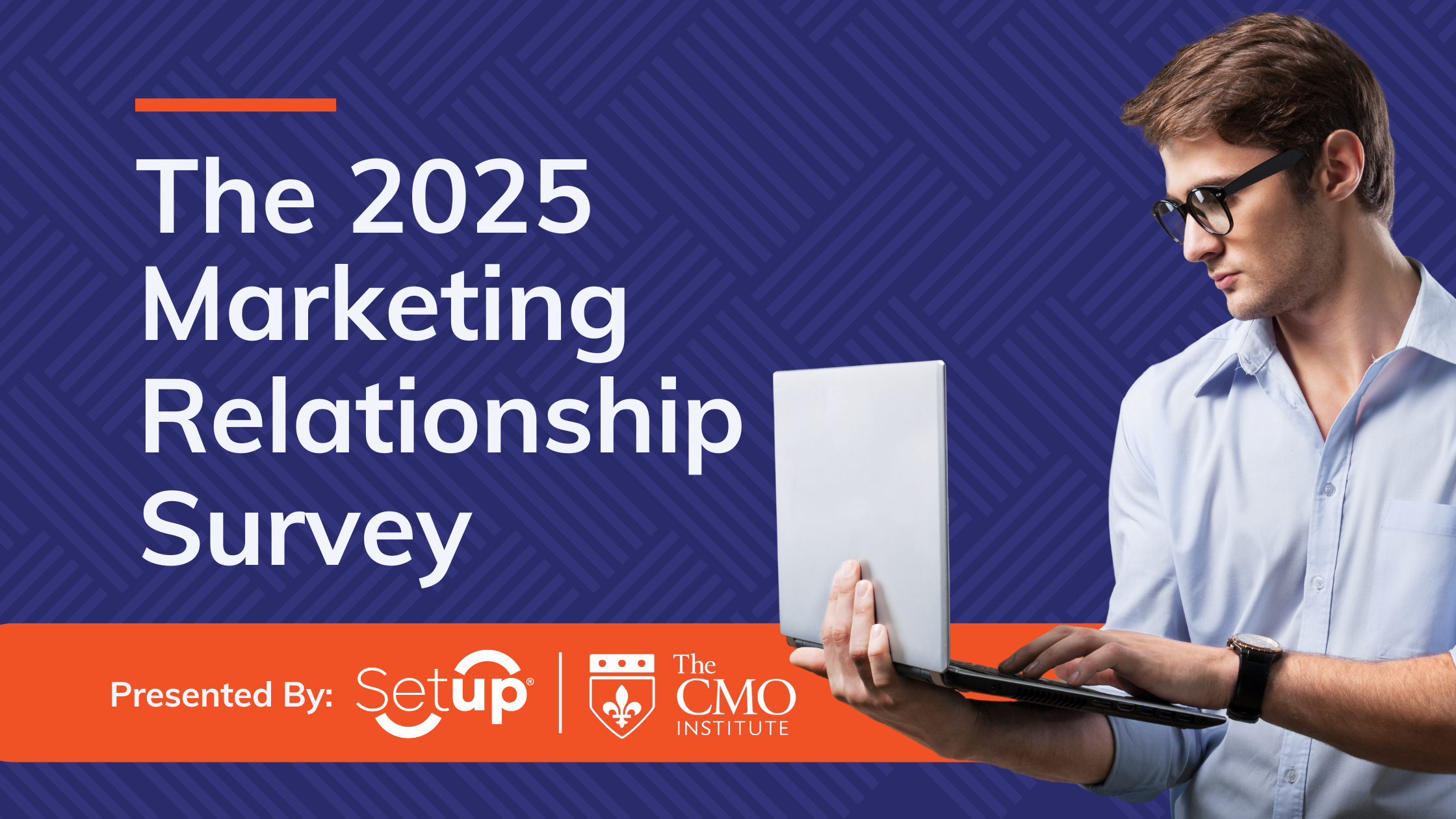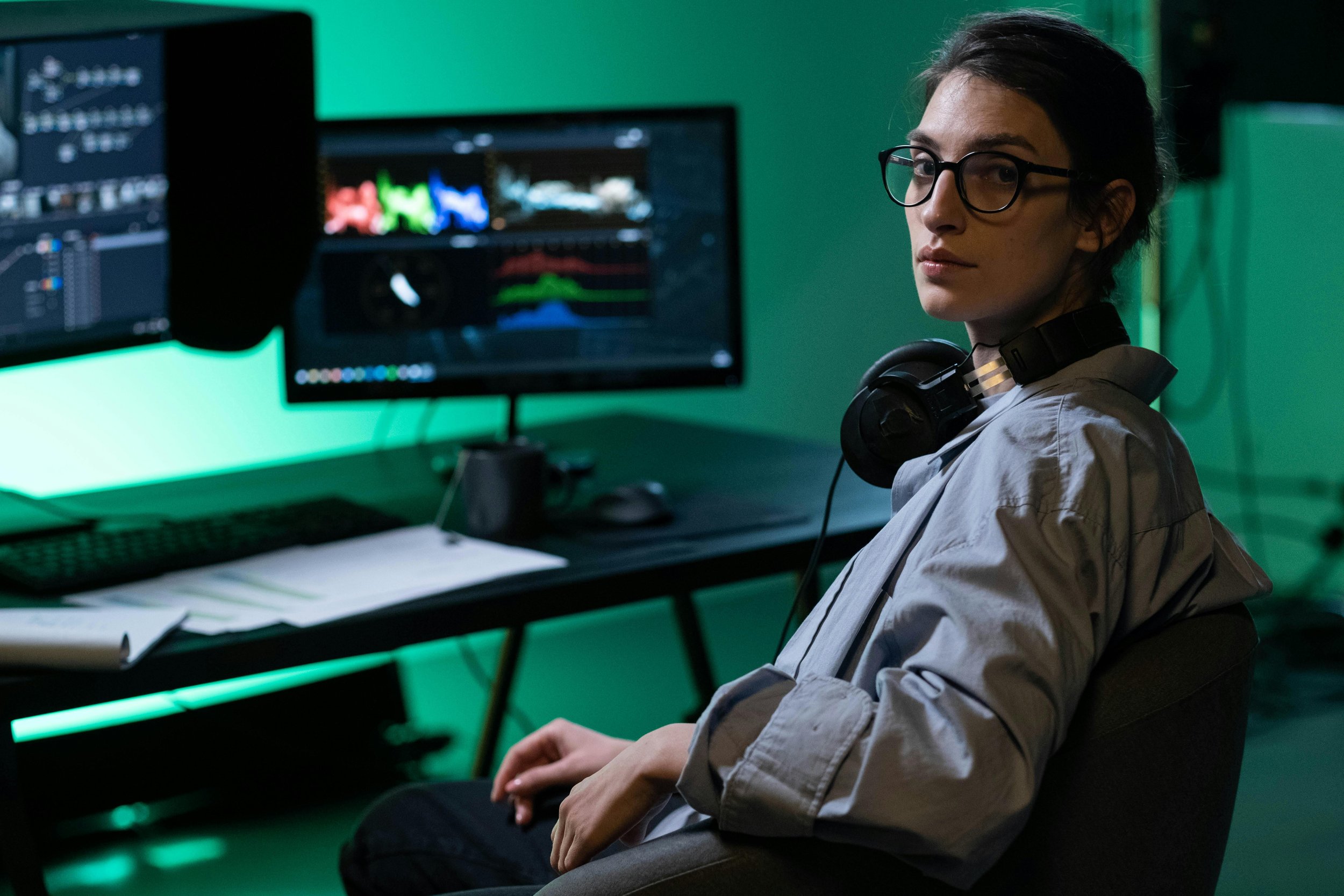6 Questions for Inspirational Women in Marketing Series | Part 12
In 2019, as a tribute to Women’s History Month, we started the “Women in Marketing Series,” featuring the stories of more than 40 women over the years, and inspiring the start of our “In This Dame and Age” virtual event where women marketers could network, brainstorm, and share insights and advice.
When we first started the series, the United States Department of Labor reported that 57% of market research analysts and marketing specialist roles were made up of women. Now, five years later, the United States Department of Labor reports 61.7%.
To celebrate women in the marketing profession and to continue highlighting them, we asked women marketing leaders from Prudential, Briggs & Stratton, CVS Health, and more about their personal triumphs, tribulations, and advice about working in the marketing industry.
Featured Leaders:
Christine Davison | Director of Marketing - Electrification at Briggs & Stratton
Sarah Mitchell Jewett | Head of Care Management Marketing at CVS Health
Pamela Alvord | Former VP, Executive Director of Marketing at DEKRA North America
Ashley Cheretes | Marketing Director at Prudential
1. What inspired you to pursue a career in marketing?
Davison: As a customer, I was always fascinated by the big brands of the world such as Nike, The Coca-Cola Company, and General Mills, and understanding what it takes to bring a product to market. Combine that fascination with University marketing classes and working in a corporate retail environment early in my career, and you get a nearly two decade career in marketing that still has a lot of runway to go.
Alvord: I always loved writing and art, but wasn't talented enough at either one to make them my career. My path towards Agency Account Management and Marketing Strategy started when I was named editor of my High School yearbook and competed in DECA's advertising and marketing competitions. When I was looking at colleges, an advisor recommended I read On Advertising by David Ogilvy. That sealed my fate! In fact, I have a diary somewhere that said my life ambition was to be an Account Executive at Ogilvy & Mather.
Cheretes: I knew I was a decent writer and wanted career options. With a little nudging from my mom, I declared English and Communications as my major. I took my first marketing campaigns class and was hooked. I fell in love with the art and science of marketing. This, plus my experience connecting marketing to the deeper mission of making someone's life better with a product, was the true sell for me.
2. What challenges have you faced as a woman in marketing, and how did you overcome them?
Davison: I have been in a male dominated environment the majority of my career. At times, it can be difficult to have your voice heard.
“The key is speaking up and having confidence backed by facts. ”
Walk into a room and make people want to listen to what you have to say. This takes practice and a confident mindset. The more you do it, the more you will have the ability to take control of a room and people will want to hear what you have to say.
Alvord: I started my career in Detroit, where I was often the youngest person in the room. I vividly remember trying to tactfully correct a client who described a status meeting as "chatting with the girl," dodging inappropriate advances on a business trip, and being told I needed to dress in more muted colors. But the most egregious was when I was eliminated from consideration for a transfer because I was a new mother. The office head knew nothing about me beyond my status as a mother and told me that he "doesn't like to invest in women of my age because they flake out when they have babies." I remember addressing his perceptions of me, but, in hindsight, wish I had more aggressively advocated for myself and others who would undoubtedly face the same issues from this leader.
Cheretes: For me, it was starting a family. My career was always important to me, and I frequently worked late hours early on. However, once I had my children, I felt like I was stretched between both, like on one of those cruel stretching medieval devices. The biggest lesson I've learned is that hours are used to measure time, but your impact is measured in dollars and cents. This helped me refocus my time on the most important projects and relationships.
Jewett: I think women often feel that they have to prove themselves, whether in marketing or other fields. This was especially true for me in my first leadership role when I was significantly younger than many of my direct reports. I wanted to be taken seriously and show I was capable. I quickly learned to gather as much data as possible to drive my decisions. People can argue with your opinion, but you bring a different level of credibility when you have the facts and figures behind you. I’m also a big believer of empowering and learning from your team. Everyone brings different strengths to the table, and the best leaders figure out how to capitalize on those unique talents to build a whole that is greater than the sum of its parts.
3. Who helped you on your current path to becoming a marketing leader?
Davison: I have been fortunate in my career to work for many great leaders with amazing backgrounds who have guided and mentored me. I cannot pinpoint just one or even a couple. I consider myself very lucky to have been surrounded by so many intelligent and truly great people along my career path.
Alvord: I had some amazing mentors early in my career who taught me how to think strategically, build relationships with clients, and lead with empathy. When I face difficult situations, I still often think "What would Jan, David, or Laurel do?" I will also always be grateful to the leaders who took a chance on a 30-year advertising agency veteran and trusted me to lead their North American marketing efforts.
4. What advice would you give to the next generation of women marketers?
Davison: Marketing is a constant changing landscape filled with endless data to help drive decisions. Be curious, never stop learning, and don't be afraid to ask questions. Take on assignments that push you out of your comfort zone, take risks, and learn from your failures. Failures are learning opportunities that will only make you a smarter marketer.
Alvord: Three things (and not all of them just apply to women):
Be intellectually curious. Successful marketers must consume information (and yes, advertising and marketing) from any and all sources.
See things from the customer's perspective. Don't assume that your lifestyle, experience, or perspectives are the same as your target audience – even when they appear to be just like you.
As a woman, don't doubt yourself and your insights. Too often, early in my career, I didn't share my opinion because someone (usually a man) spoke first and authoritatively on a topic. Marketing isn't an exact science. It is made better when different opinions are voiced and considered.
Cheretes: Don't follow the money. Follow the knowledge, opportunity, and the leader invested in your growth. This is especially true early in your career. The money comes when you grow your value through knowledge and experience. If you feel like you've outgrown your current role, look for opportunities to help others or volunteer for stretch assignments. My personal rule is if I know 30% of the topic or subject matter, I can make up the remainder by researching and asking others for their insights.
Jewett: Don’t be afraid to do something that scares you. No one has it all figured out, no matter how it may seem on the outside. Take calculated risks, learn from your mistakes, and keep showing up. Most importantly, become a student of your industry. When you can speak the language of your business, you’re better positioned to demonstrate the true impact of marketing. That’s what separates a good marketer from a marketing leader.
5. What were pivotal moments in your career that contributed to your success?
Davison: For the first 10 years of my career, my focus was B2C marketing. An opportunity arose for me to take on a more technical B2B marketing role which pushed me outside of my comfort zone. I was really nervous about that and it was a big change for me, but that opportunity propelled my career forward into a number of different roles where I am now a Director of Marketing.
Alvord: Early in my career I made some moves that were scary at the time. I moved to Detroit without a job on the belief that one of my informational interviews would turn into an entry level job (it did). My late husband agreed to quit his job so I could take a position in NY, making me the breadwinner in one of the most expensive markets in the world. I requested a transfer from NY to Atlanta (which was considered a step down) because I wanted to put family first. Most recently, I stepped away from an amazing team to become a Fractional CMO. I only wish I had been that brave more often. Today's women are so much stronger and confident in this area than I was.
6. What emerging marketing trend excites you?
Davison: There is a lot of content out there regarding AI and how it is going to affect the future of marketing. As a marketer, you want to be "customer obsessed" to reach your target audience in an effective way. AI is going to allow companies to be more personalized and targeted than ever before.
Alvord: This trend may be a bit of a left turn, but I am fascinated by the changes we are seeing in the workplace. When I started, you wore your matching suit, panty hose and sensible pumps to the office every day or you couldn't have a career in the business. The explosion of work from home, hybrid, remote, part-time, freelance, fractional, and other work structures have made a career in marketing open to a much broader cross-section of women. Single moms, primary caregivers, people who are neurodivergent, those who suffer from social anxiety, and so many more can now bring their talents to this wonderful field. And our work is better for it.
Jewett: All things digital. The advent of digital marketing flipped the script because it changed the relationship between a brand and its target consumers into a two-way dialogue. We now have the ability to communicate in real-time with our audiences and collect a vast array of data at every interaction. Being able to apply that rich data in a meaningful way is critical to building and maintaining customer relationships – and I think that’s something we all aspire to do even better. There is so much opportunity in this space, and it’s up to us to stay ahead of the curve to remain relevant.
BONUS Question! Do you have a favorite ad that is about women's empowerment?
Davison: One of my favorite new ads is the CALIA Inspire: There’s Beauty In The Burn. The underlying meaning is all about working hard to achieve the results you want. You can achieve great things if you believe in yourself and put your mind to it. Overall, the ad gives a vibe of strong, confident women that are "owning it.”
Alvord: It is hard not to admire Dove's work in this area, but, as a woman in business, I believe the most powerful messaging depicts women as mothers, daughters, wives, same sex partners realistically in strong, non-stereotypical roles. The Cheerios ad with the biracial family comes to mind, but, in reality, these examples are few and far between.
Cheretes: My favorite are the Dove ads because, in my mind, they were one of the first to pioneer body positivity and women uplifting women in the modern age. I remember when they launched "The Campaign for Real Beauty" in the early 2000s to support young girls and women to build their confidence. I thought it was so different and interesting how they called out how differences make us beautiful, and this was rather unheard of until then.
Jewett: My favorite campaigns are the ones that are bold enough to challenge the status quo. Dove’s beauty campaign is iconic for that – they really broke ground in challenging how women are portrayed in ads by putting a spotlight on the unrealistic expectations on women and the negative impact that can have. And I think they paved the way for a lot of important conversations about body positivity and inclusivity.
Five years ago, CVS introduced the Beauty Unaltered campaign by vowing to only use digitally unaltered beauty images. This is a hugely important topic, especially when you think about how easy it is to use filters and create a perception online that can make us feel “less than” in real life. Brands that are willing to use their platform and reach to drive positive change are the ones I want to support, both as a woman and as a mother of two young daughters.
TLDR:
Most of the contributors for this blog had a knack and interest for marketing at a young age, identifying their writing skills as a strength that would serve them later on in their marketing career.
Advocating for oneself and making your voice heard is important. Use data points to back up your value and decisions.
Constantly take risks and educate yourself about your industry. Be a student and learn as much as you can in every role.
Be brave. Make the move, follow your heart, go where you are valued, prioritize yourself, and speak up.
Dove has paved the way for conversations around body positivity and expectations around appearances.
It is fascinating to interview women leaders year after year to hear their different perspectives on the marketing industry, and where there is overlap in experience and opinion. If you would like to be nominated to be featured in an Industry Blog or Women in Marketing blog, please contact us here. If you were inspired by these stories and are a woman looking to connect with other like-minded marketing leaders, check out our next In This Dame and Age event.
If you know someone who embodies authentic marketing leadership, has set an example of success, and paved the way for others who is a marketing leader or executive, nominate them to be interviewed for our CMO Spotlight series here.
Lastly, never miss a moment! By subscribing to our newsletter below, you’ll receive the latest industry news, interviews, updates, and events right in your inbox!


































Super Bowl LX showcased brands pushing weight loss drugs, AI, and utilizing celebrities to an absurd amount (what’s new?), as well as another “Minions" movie in theaters (surprised but not shocked). Every marketer weighs in on who won their hearts…and this year, for us, it came down to brands that leaned into storytelling that included nostalgia and emotion, specifically with a human lens.